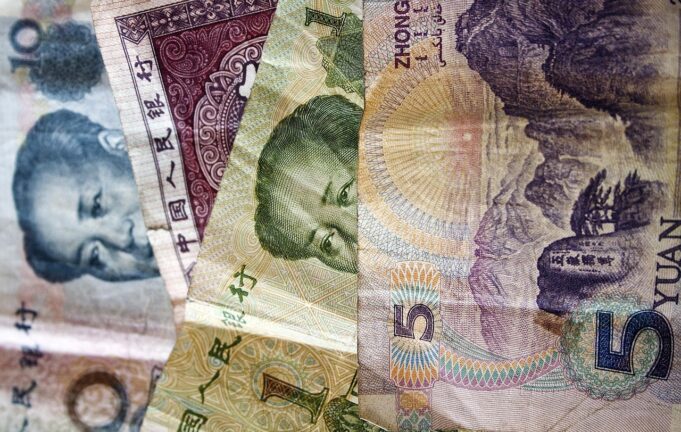The European Commission sees no justification for China’s sanctioning of two Lithuanian banks on Wednesday. It is, however, been talking to Beijing about finding “a mutually acceptable solution“ to the matter.
Beijing‘s ministry of commerce announced on Wednesday that Lithuania’s Urbo Bankas and Mano Bankas shall now conduct no business or cooperation with organizations or individuals in China. The move marks the first time that Beijing responded directly to EU sanctions against Chinese banks.
The European Commission, not surprisingly, voiced opposition to the move. “From the European perspective, we see no evidence or justification for such countermeasures. We’re going to look at them in detail, as we always will, but our initial analysis is that this has no justification whatsoever,“ said Commission spokesman Olof Gill on Thursday.
We don’t believe that those countermeasures have any justification or evidence base and therefore we call on China to remove them even now. — Olof Gill, EC spokesman
What triggered Beijing was an EU decision to place Chinese banks Heihe Rural Commercial Bank and Heilongjiang Suifenhe Rural Commercial Bank on its Russia sanctions list. This was a significant step, as no Chinese banks had previously been part of Russia-related sanctions. The choice of the two smaller institutions may well be a warning to larger Chinese banks to strictly comply with EU sanctions against Russia.
‘Mistaken decisions‘
Beijing had strongly protested the decision in advance, calling the EU’s accusations “groundless.” In a statement, the Ministry of Commerce urged the EU to correct its “mistaken decisions” to avoid further damaging long-standing economic and financial ties. Brussels can lift the sanctions if the Chinese banks prove their targeting lacked merit. Both institutions are located in cities near the Russian border.
„The important thing to keep in mind is that even before these countermeasures were announced by China, we had been engaging in a very constructive way with China on the issue of the sanctioned Chinese banks,“ Mr Gill said on Thursday. “We have done that on the basis that we’re fully open to identifying a mutually acceptable solution that could ultimately lead to the delisting of these Chinese banks. But in order for that to happen, of course, the circumvention that is happening through those banks needs to be addressed,“ he said.
You might be interested
These sanctions, if confirmed, will have no impact on our operations or our compliance with regulatory requirements. — Marius Arlauskas, CEO of Urbo Bankas
“Of course, our expectation would be that, in turn, their countermeasures” would cease to exist, Mr Gill answered a question as to what response the Commission expected from Beijing should it de-list the two Chinese banks. “But just to emphasise, again, we don’t believe that those countermeasures have any justification or evidence base and therefore we call on China to remove them even now.“
No impact
It comes as no surprise that Lithuania is now in Beijing’s sights. Relations have been tense since 2021, when the Baltic state allowed Taiwan to open a de facto embassy. China responded at the time with trade restrictions.
The Lithuanian banks, however, did not appear rattled by Beijing’s announcement. “Our bank does not conduct financial transactions in China and does not maintain business relationships with individuals or organizations in that country,“ Urbo Bankas CEO Marius Arlauskas said in a statement. “These sanctions, if confirmed, will have no impact on our operations or our compliance with regulatory requirements.”
AB Mano Bankas also said in a statement that it “doesn’t conduct active operations” in China, so the move will have no effect on daily operations, Bloomberg reported.











